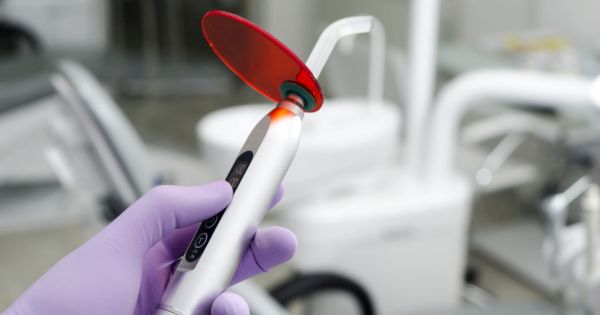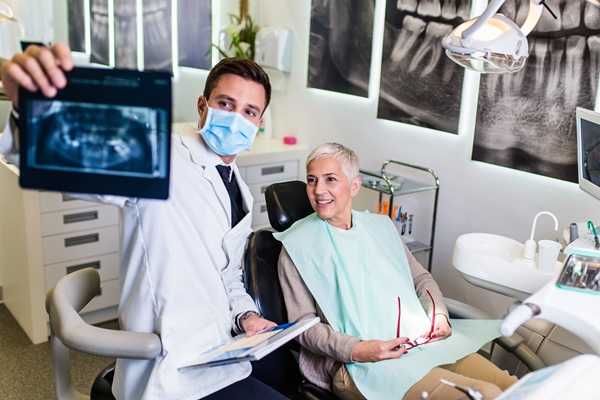Laser Dentistry: A Painless Alternative to Traditional Dental Treatment

Laser dentistry has been used to treat dental problems since the 1990s. The use of lasers has been approved by the Food and Drug Administration. The American Dental Association (ADA) is yet to approve laser dentistry as an alternative to traditional dental treatment. However, the ADA has stated that it is cautiously optimistic about the role of laser technology in dentistry.
Why is laser dentistry considered a painless alternative to traditional dental treatment?
As previously mentioned, lasers have been used to treat dental problems for over two decades. According to dentists, laser dentistry offers a more comfortable treatment option for various dental procedures that involve hard or soft tissue, especially when compared to drills and other non-laser tools.
Some of the dental procedures laser dentistry is used for include:
- Tooth decay
- Gum disease
- Teeth hypersensitivity
- Teeth whitening
How are lasers used to treat dental problems?
Laser dentistry can be used for both hard and soft tissue procedures. Hard tissue procedures are the procedures used on the teeth. Soft tissue procedures are the procedures that are used to treat the gums.
When used for dental procedures, the laser mostly acts as a cutting instrument. When it is used for teeth whitening, the laser acts as a heat source and enhances the effects of the bleaching agent.
Some of the hard tissue procedures include:
- Treating tooth sensitivity: Dentists can treat teeth that are sensitive to hot or cold temperatures with dental lasers, which seal tubules on the tooth’s root
- Detecting cavities: Lasers can be used to detect cavities early by finding evidence of tooth decay
- Dental fillings and tooth preparation: Lasers can be used to drill holes in the teeth instead of using drills. They can also be used to kill the bacteria in a cavity, which aids the long-term health of a tooth
Some of the soft tissue procedures lasers can be used to treat include:
- Fixing a gummy smile: Laser dentistry can be used to reshape the gum tissues that cause a gummy smile, which is what happens when the gums cover up a significant part of the tooth
- Getting rid of soft tissue folds: Lasers can be used to remove the soft tissue folds that can occur when a patient has ill-fitting dentures
- Lengthening the crown: Lasers can be used to reshape both the bone and gum tissue. This provides the patient with a healthier tooth structure, which makes it easier to place restorations on the teeth
What are the advantages of laser dentistry?
When compared to dental drills, lasers:
- Cause less pain and reduce the need for anesthesia
- Reduce anxiety in patients that are uncomfortable with the use of a drill
- Help to preserve more healthy parts of a tooth during cavity removal
- Reduce the swelling and bleeding during soft tissue treatment
What are the disadvantages of laser dentistry?
Some of the disadvantages of laser dentistry include:
- They cannot be used on teeth with fillings
- Traditional drills may still be needed after the laser has been used
- More expensive
- Cannot be used for certain dental procedures
Conclusion
Laser dentistry provides a painless alternative to traditional dental treatment and is becoming increasingly popular. If you have problems with your teeth that may require the use of a drill, ask your dentist if the use of lasers is an option.
Request an appointment here: https://www.carmelsmilesdentist.com or call Smiles in the Village Dentistry at (317) 218-7985 for an appointment in our Carmel office.
Check out what others are saying about our services on Yelp: Read our Yelp reviews.
Related Posts
During the consultation with an implant dentist, the patient and the dental team can put together a treatment plan. There are various steps during the teeth replacement process. Knowing them ahead of time can help the patient prepare prior to any scheduled procedures to ensure the implant dentistry process is as easy and convenient as…
Oral surgery is a branch of dental care that offers a wide range of procedures designed to address conditions and issues affecting the mouth, teeth, and jaw. These procedures can help maintain oral health and address complex dental problems. Understanding the different approaches to oral surgery can help patients make informed decisions about their treatment…
Implant dentistry is a great way to replace one or multiple teeth long-term. An often overlooked benefit of implant dentistry is the ability to prevent bone loss in the jaw. This review discusses how implant dentistry can help you keep your jawbone healthy and prevent bone atrophy.Alternative solutions to implant dentistry do not provide the…
Many dentists recommend implant dentistry to patients seeking teeth replacement because it is safe and has proven results. Implant dentistry also provides a way to fulfill a range of teeth replacement needs, and you can restore your smile after losing a single tooth, a section, or an entire row of teeth with dental implant restorations.The…


